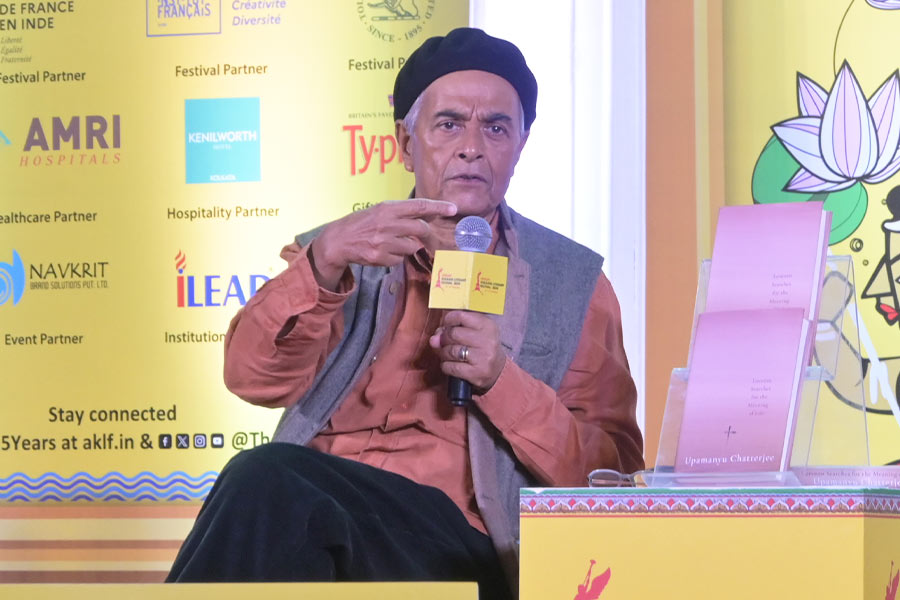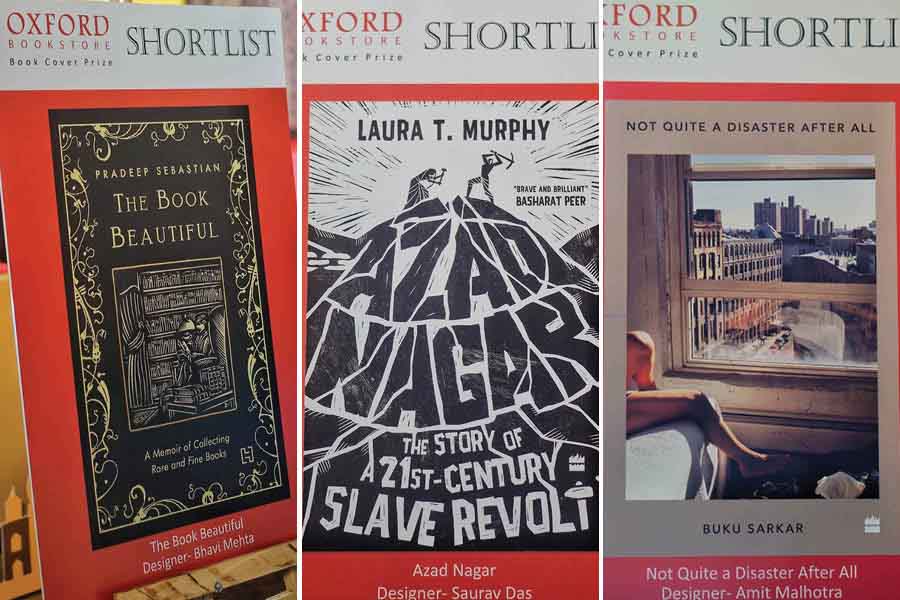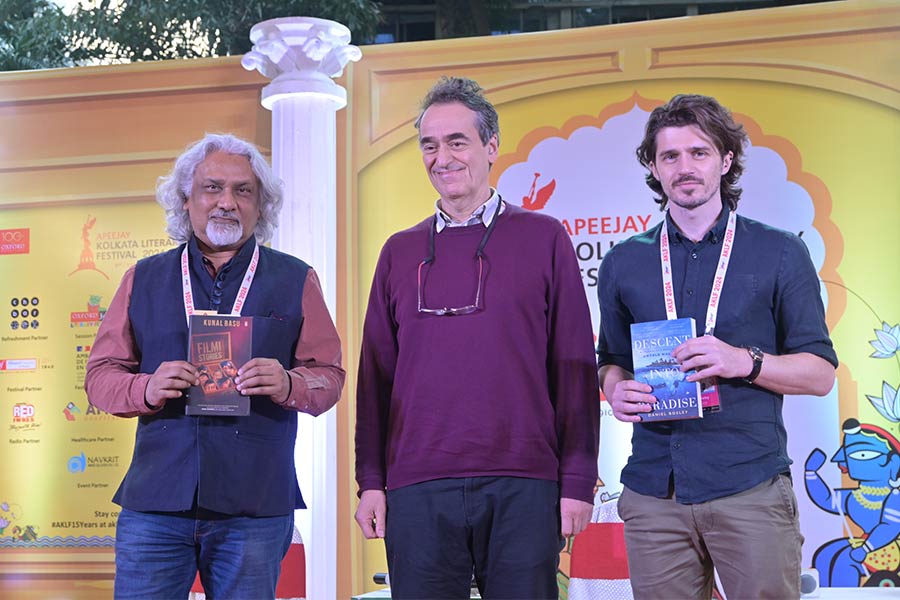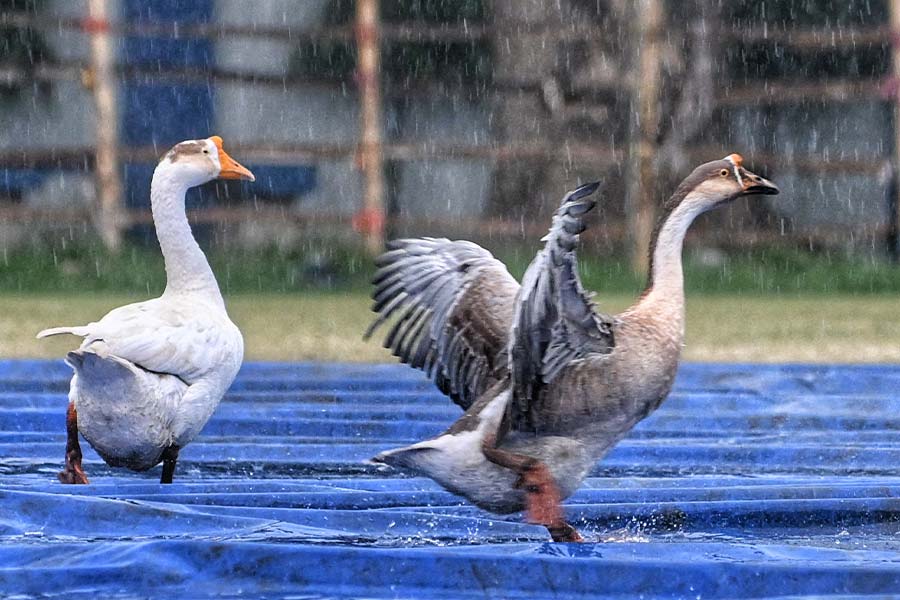At first glance, several nuances of civil-servant-turned-author Upamanyu Chatterjee’s new novel will strike his regular readers as starkly different. Chatterjee, who is known for his satire and dark humour stitching together themes of bureaucracy and social idiosyncrasies, makes a radical departure towards metaphysical questions through the titular character in Lorenzo Searches for the Meaning of Life. Writer and translator Anjum Katyal was in conversation with Chatterjee about his novel at the Apeejay Kolkata Literary Festival (AKLF) 2024 on February 9 at Allen Park.
Chatterjee’s novel follows the life of 19-year-old Lorenzo Senesi of Aquilina, Italy. His introspective musings culminate with him landing up at a Benedictine monastery to become a monk. In his pursuit of a deeper understanding of existence, Lorenzo proceeds to inhabit a monastery in Khulna, Bangladesh for 10 years, immersing himself in the Bengali culture as he learns to adjust to its customs. The unique narrative brings forth a texture of language that is also new, often without Chatterjee’s characteristic witticisms.
‘Here is a man who begins his spiritual search at the mere age of 20’
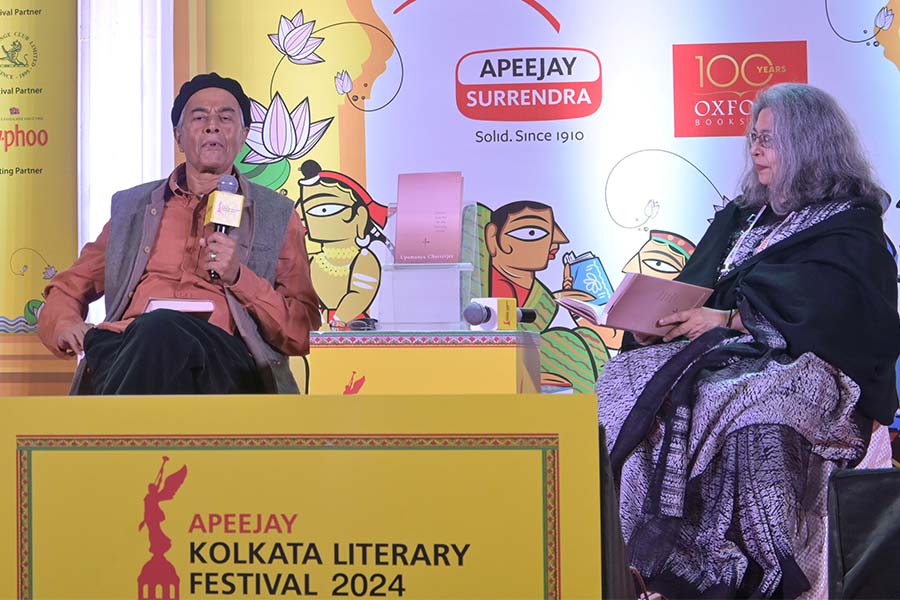
Chatterjee in conversation with Anjum Katyal at AKLF 2024
On being asked how this story came into being, Chatterjee said that the novel was a fictionalised account of the life of his Italian neighbour while he and his wife were living in Sri Lanka a few years ago. Chatterjee’s neighbour-turned-inspiration was a man called Fabrizio, who was eager to tell his story to the world. Over a series of long meetings, phone calls and incessant note-taking, Chatterjee sketched Fabrizio’s extraordinary life on page.
“Lorenzo’s is a life lived anti-clockwise,” commented Chatterjee, when asked about what drew him to the character’s life. “Mostly, people choose to be a monk after living the majority of their lives. Here is a man who begins his spiritual search at the mere age of 20.” Once the reader is drawn to Lorenzo’s story, they are left wanting to know more about his extraordinary experiences. However, the description of these experiences is never too dramatic. Very little of Lorenzo’s inner thoughts are revealed to the readers.
“Lorenzo is an interesting character, but also remote. At times, he does things that might seem incomprehensible to others. Not to him, though. His spiritual urge is terribly genuine,” describes Chatterjee. What drew Lorenzo to monastic life, Chatterjee explained, was the spiritual discipline it came with. An assertion from Fyodor Dosteovsky’s The Brothers Karamazov interested him: “Monks are not a special sort of men, but only what all men ought to be.” Even though, at the end of the novel, Lorenzo returns back to his material life, he wishes to retain that spiritual discipline from his time as a monk. For Lorenzo, the journey remains fruitful regardless of the destination.
‘You need to put a bit of yourself in your subject matter’
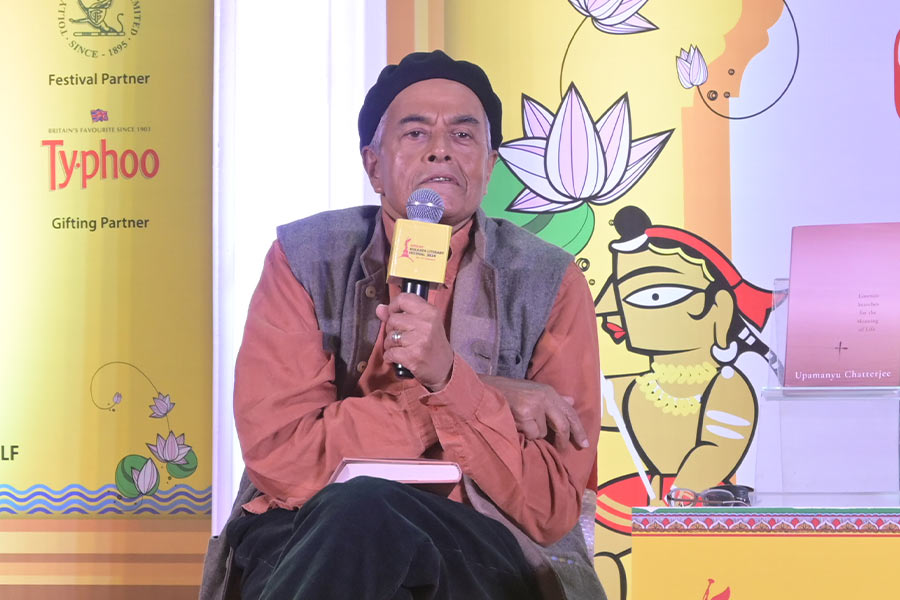
Chatterjee tried to visualise the story through Fabrizio’s eyes as much as possible
The conversation was followed by Chatterjee reading a section from his novel. In that section, Lorenzo is sent to do laundry for the first time in a pond in Khulna. Unaware of the rules of laundry in a monastery, Lorenzo is shocked to know that washing clothes in Bangladesh is a communal affair. His shock increases as he sees his peers beating their clothes and undergarments against a rock to clean it. Chatterjee’s narration in this section is exceptionally detailed, interspersed with carefully observed images of washing clothes — the rain-fed water in the pond, the algae-green ground and a spellbound Lorenzo.
When asked about how he arrived at this narrative style, Chatterjee said, “I saw the countries as much as possible through Fabrizio’s eyes. We went over little details repeatedly, and I followed everything he said.” And how does one follow everything without losing sense of where they want to take the story? “You need to put a bit of yourself in your subject matter,” answered Chatterjee.


